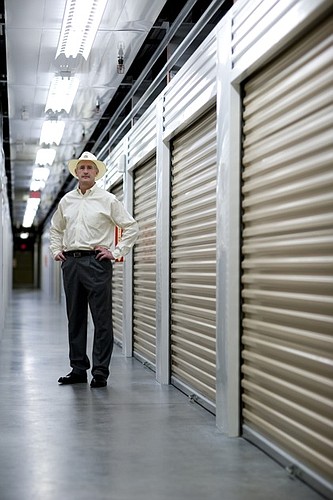- July 26, 2024
-
-
Loading

Loading

John Ringland used to get along well with lenders at Colonial Bank.
After all, Colonial helped the Cape Coral entrepreneur build a successful self-storage facility in the fast-growing Lee County city during the housing boom. Not even Hurricane Charley in 2004 could stop the rush of customers as he built hundreds of units to keep up with demand.
But in the downturn, Ringland was a few days late making an interest payment and the bank sold his loan to a group of Denver investors who he says want to take his business and sell it off.
It's a cautionary tale to struggling borrowers who in tough times mistakenly believe they'll be working with the same lender who gave them loans in good times. Investors who buy these loans often prefer to foreclose on the business, sell it at a quick profit and use the proceeds to buy new loans. They're not interested in clipping interest coupons for years.
Because of that, entrepreneurs such as Ringland could lose their business even if they've restructured their companies so they can make payments on the loan.
“In all my years in business, I've never been caught in that position,” says Ringland, 51, who moved from Indiana to Florida in 1983 and helped start a family construction business.
In 2001, after building several self-storage facilities for other entrepreneurs, Ringland decided to build and manage his own. He recruited a dozen investors who invested a total of $1.2 million, borrowed $1 million from Colonial and bought some land on Chiquita Boulevard in Cape Coral.
After slogging through the notoriously slow Cape Coral bureaucracy, Ringland opened 130 self-storage units in 2003 and filled Community Self Storage to 100% within three months.
Based on his initial success, Ringland borrowed $2.5 million from Colonial for the next building, which he opened with 300 units six days before Hurricane Charley hit in August 2004. Fortunately, Ringland had built his storage units to withstand hurricanes and homeowners rushed to rent them. “We rented that building out in two weeks,” he says.
So Ringland borrowed an additional $3 million from Colonial to build another 300 units in the fall of 2006. Unfortunately, that's when his troubles started. The city had undertaken a major sewer-improvement project on Chiquita Boulevard, blocking the front entrance to the storage facility and the new units sat empty. “They cut our traffic count significantly and things got worse,” Ringland says. “We had all this empty space.”
By the time the sewer-construction crews had finished a year later in 2007, the local economy had slipped into a severe recession. “I was pulling money out of my pocket to make payments on it,” Ringland recalls. “Some months it was $15,000, others it was $30,000.”
To lower costs, Ringland fired the lawn crew and purchased a lawn mower. He also cut health-care benefits for his employees. “I hated to do that,” he says.
On more than a dozen occasions, Ringland says he tried to persuade Colonial Bank to alter the terms of his loan. Then, on June 15, 2008, he missed a payment. By June 24, he arranged to make his late payment but the bank didn't want to hear it. “It's too late, you've been put in collections,” he remembers the bank telling him. At the time, his balance was $6.4 million. “It was shocking,” he says.
By then, Colonial too was under pressure to clean up its balance sheet as many of the commercial real estate loans it made during the boom were souring. Regulators shut down Colonial in August and sold the assets and deposits to BB&T.
In the fall of 2008, Colonial sold the Ringland's loan to SummitBridge National Investments, a Denver-based company. Tampa attorney Amy Drushal with the Trenam Kemker law firm declined to discuss the case and says she advised her client SummitBridge not to discuss it either.
Ringland says SummitBridge initially demanded he trade them the debt for a majority of the equity in his self-storage company. Ringland refused because he believed SummitBridge would turn around and sell the company, suspecting the investors already had a buyer in the wings.
To fend off SummitBridge, Community Self Storage filed for bankruptcy reorganization in February. Since then, business has picked up and 88% of the units are full. The plan is to repay the loan in full over time, says Ringland's attorney, Alberto Gomez Jr. of Morse & Gomez in Tampa. “This is a debtor who has demonstrated he can pay,” Gomez says. “He has money in the bank.”
But Gomez says SummitBridge is trying to gain control of Ringland's company because they know it's more valuable than the loan that they bought from Colonial, likely at a steep discount. “They have little or no incentive to settle with anybody,” Gomez says.
—Jean Gruss